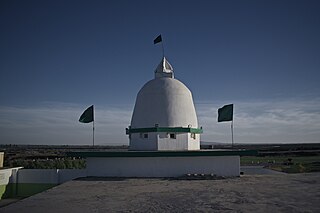 W
WReligious diversity has been a feature of Kurdistan for many centuries. Main religions that currently exist in Kurdistan are as follows: Sunni Islam, Shia Islam, Christianity, Zoroastrianism, Yarsanism, Yazidism, Alevism, and Judaism. Today, Sunni Islam is the most adhered religion in Kurdistan.
 W
WPrincipality of Eğil was a Kurdish principality or emirate around the town of Eğil founded by Pir Mansûr (b.989) who conquered the town around 1049. Pir Mansûr claimed to be a descendant of Prophet Mohammed and settled in the area from Hakkâri in 1049. The descendants of Pir Mansûr would rule Eğil for nearly eight centuries. During the rule of Emir Muhammed, the principality had expanded southward to Karaca Dağ, Palu and Elazığ northward, Çermik to the west and the area between Hani and Lice to the east.
 W
WYarsanism, Ahl-e Haqq or Kaka'i, is a syncretic religion founded by Sultan Sahak in the late 14th century in western Iran. The total number of followers of Yarsanism is estimated to be just over half a million in Iran and Iraq who are mostly Kurds from the Guran, Sanjâbi, Kalhor, Zangana and Jalalvand tribes. Turkic Yarsan enclaves also exist in Iran.
 W
WYazdânism, or the Cult of Angels, is a proposed pre-Islamic Mithraic religion of the Kurds. The term was introduced and proposed by Kurdish and Belgian scholar Mehrdad Izady to represent what he considers the "original" religion of the Kurds.
 W
WThe Yazidi Book of Revelation is the title of a Kurdish book which is assumed to be one of two sacred books of Yazidis, the other being the Yazidi Black Book. However, the authenticity of its sacredness has not been confirmed. The book claims to be the words of Melek Taus wherein he allocates the different responsibilities, blessings and misfortunes as he desires and which humans have no say in.
 W
WYazidism or Sharfadin is a monotheistic ethnic religion that has roots in a western Iranic pre-Zoroastrian religion directly derived from the Indo-Iranian tradition, although other, less common and more outdated narratives link the religion to Zoroastrianism and even Ancient Mesopotamian religions. Yezidism is followed by the mainly Kurmanji-speaking Yazidis and is based on belief in one God who created the world and entrusted it into the care of seven Holy Beings, known as Angels. Preeminent among these Angels is Tawûsê Melek, who is the leader of the Angels and who has authority over the world.
Zoroastrianism or Mazdayasna is one of the world's oldest continuously practiced religions, based on the teachings of the Iranian-speaking prophet Zoroaster. Zoroastrianism has a dualistic cosmology of good and evil and an eschatology which predicts the ultimate conquest of evil by good. Zoroastrianism exalts an uncreated and benevolent deity of wisdom, Ahura Mazda, as its supreme being. The unique historical features of Zoroastrianism, such as its monotheism, messianism, judgment after death, heaven and hell, and free will may have influenced other religious and philosophical systems, including Second Temple Judaism, Gnosticism, Greek philosophy, Christianity, Islam, the Baháʼí Faith.